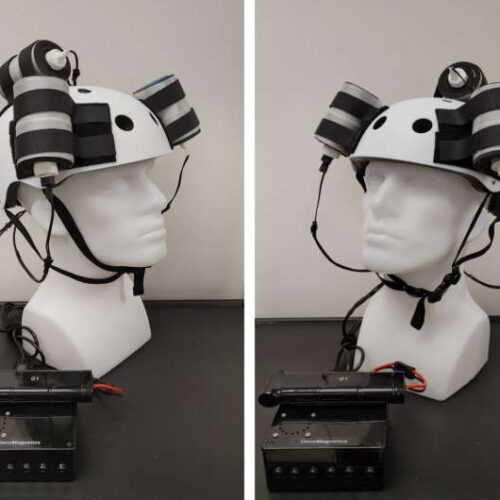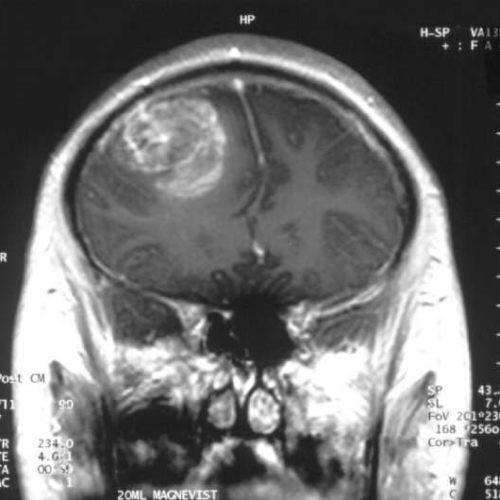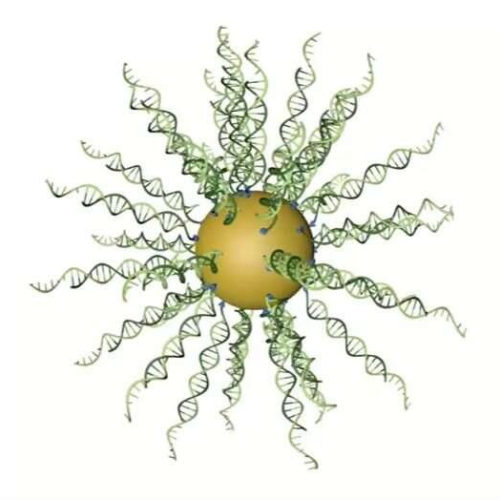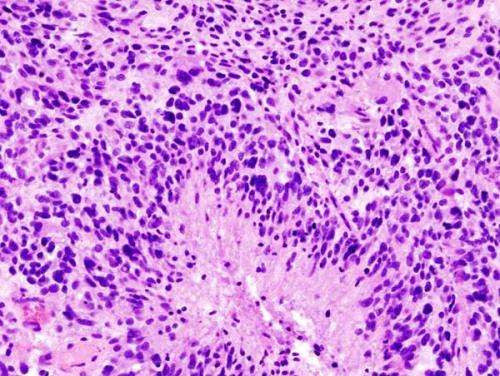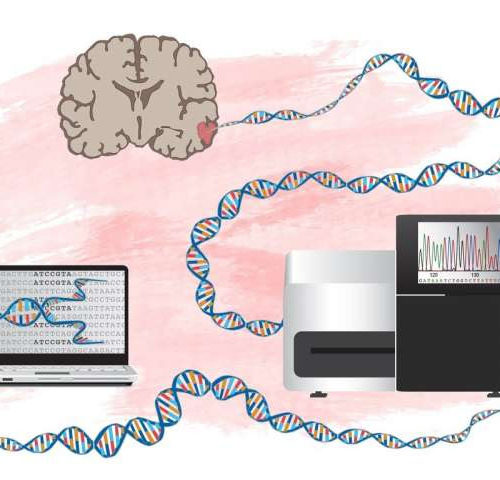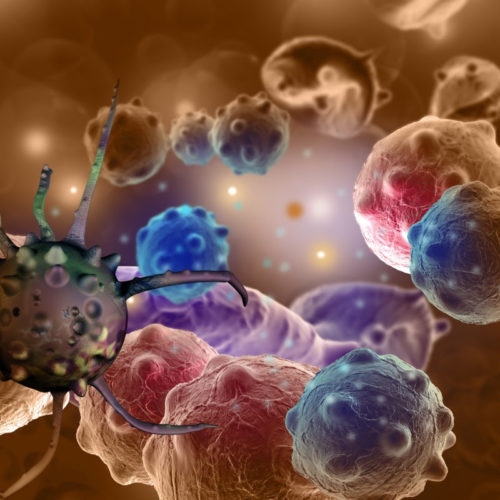by Houston Methodist Device helmet with 3 on oscillators securely attached. The oscillators are connected to a controller box powered by a rechargeable battery. Credit: Houston Methodist Houston Methodist Neurological Institute researchers from the department of neurosurgery shrunk a deadly glioblastoma tumor by more than a third using a helmet generating a noninvasive oscillating magnetic field that the...
Tag: <span>glioblastoma</span>
Case study shows patient on ketogenic diet living fully with IDH1-mutant glioblastoma
BOSTON COLLEGE Chestnut Hill, Mass. (6/10/2021) – A British man who rejected the standard of care to treat his brain cancer has lived with the typically fatal glioblastoma tumor growing very slowly after adopting a ketogenic diet, providing a case study that researchers say reflects the benefits of using the body’s own metabolism to fight this particularly...
Protein variant may have potential as target for glioblastoma
by Melissa Rohman, Northwestern University Gliobastoma (astrocytoma) WHO grade IV – MRI coronal view, post contrast. 15 year old boy. Credit: Christaras A/ Wikipedia. Inhibiting a novel protein variant within glioma stem cells may be a promising therapeutic approach to treat glioblastoma, according to a Northwestern Medicine study published in Nature Cell Biology. “With this study, we...
New spherical nucleic acid ‘drug’ kills tumor cells in humans with glioblastoma
by Northwestern University An early clinical trial in individuals with the deadly brain cancer, glioblastoma, showed an experimental spherical nucleic acid (SNA) drug developed by Northwestern University scientists was able to penetrate the blood-brain barrier and trigger the death of tumor cells. This is the first time a nanotherapeutic has been shown to cross the blood-brain...
Brain tumors may originate in a brain region distinct from where it becomes a lethal disease
by Children’s National Hospital A mouse model of glioblastoma, an aggressive type of cancer that can occur in the brain, suggests that this recalcitrant cancer originates from a pool of stem cells that can be a significant distance away from the resulting tumors. The findings of a new study, led by Children’s National Hospital researchers...
Scientists ID gene responsible for deadly glioblastoma
UNIVERSITY OF VIRGINIA HEALTH SYSTEM THE DISCOVERY OF THE ONCOGENE RESPONSIBLE FOR GLIOBLASTOMA COULD BE THE BRAIN TUMOR’S ACHILLES’ HEEL, SAYS HUI LI, PHD, OF THE UNIVERSITY OF VIRGINIA SCHOOL OF MEDICINE AND THE UVA… view more CREDIT: UVA HEALTH Scientists have identified an oncogene (a cancer-causing gene) responsible for glioblastoma, the deadliest brain tumor....
New method created for identifying genes behind brain tumors
by Uppsala University Researchers at Uppsala University have developed a method for identifying functional mutations and their effect on genes relevant to the development of glioblastoma—a malignant brain tumor with a very poor prognosis. The study is published in Genome Biology. The human genome consists of nearly 22,000 genes. Many studies have explored the nearly...
Approved malaria drug joins the fight against deadly brain cancer
By Nick Lavars May 26, 2020 As the most aggressive type of brain cancer and one with a very poor survival rate, there is a desperate need for new and improved treatments for glioblastoma. Scientists at Virginia Commonwealth University may have uncovered a powerful new tool in this regard, in the form of an already...
CBD shows promise for fighting aggressive brain cancer
Bethesda, MD – Findings from a new study examining human and canine brain cancer cells suggest that cannabidiol could be a useful therapy for a difficult-to-treat brain cancer. Cannabidiol, or CBD, is a non-psychoactive chemical compound derived from marijuana. The study looked at glioblastoma, an often-deadly form of brain cancer that grows and spreads very...
Study finds new pathway for potential glioblastoma treatment
by Dorian Martin, Texas A&M University A team led by Texas A&M University’s College of Veterinary Medicine & Biomedical Sciences’ (CVM) researcher Dr. Stephen Safe has discovered a new pathway that may help suppress the development of glioblastoma tumors, one of the deadliest forms of cancer. The Texas A&M team’s research focuses on the AH...

